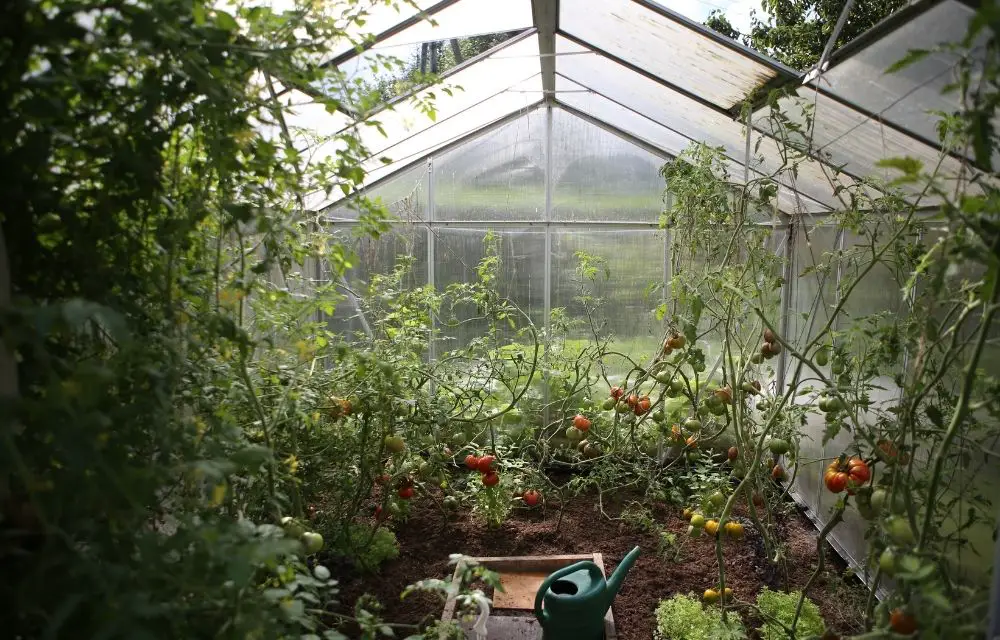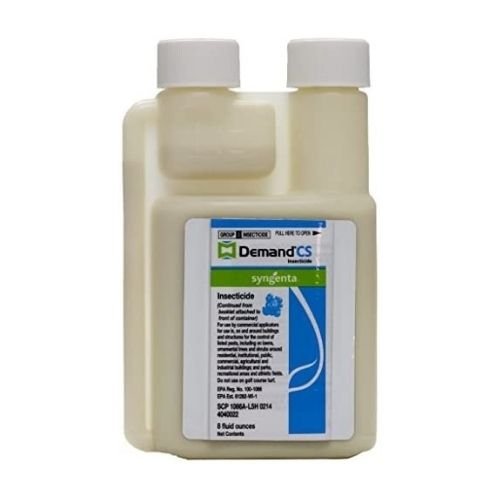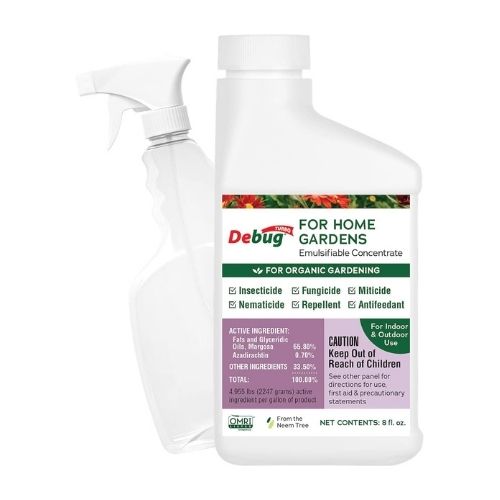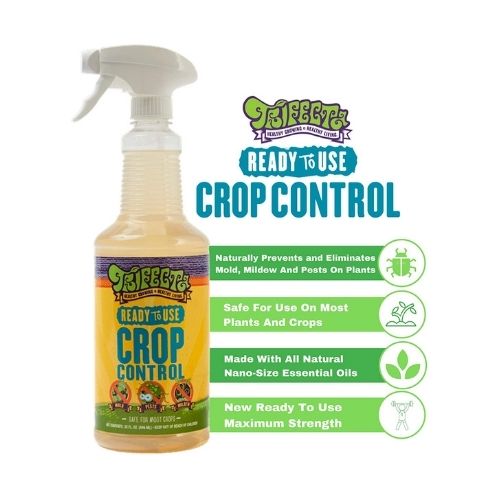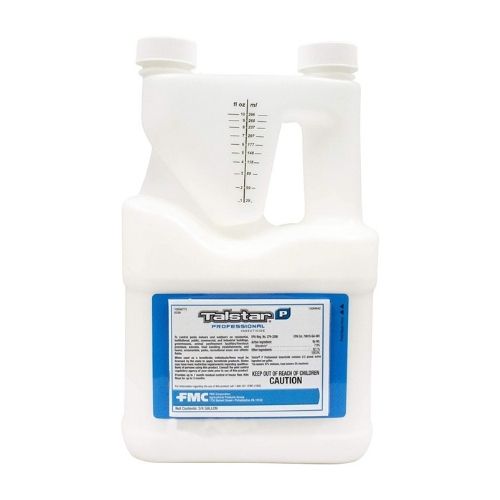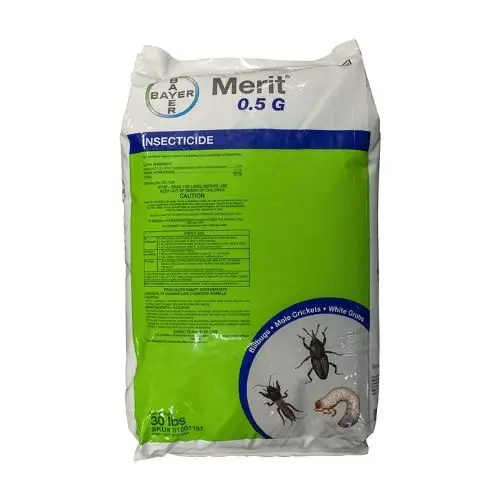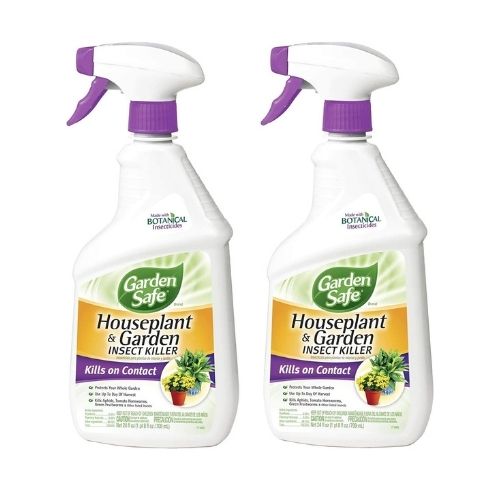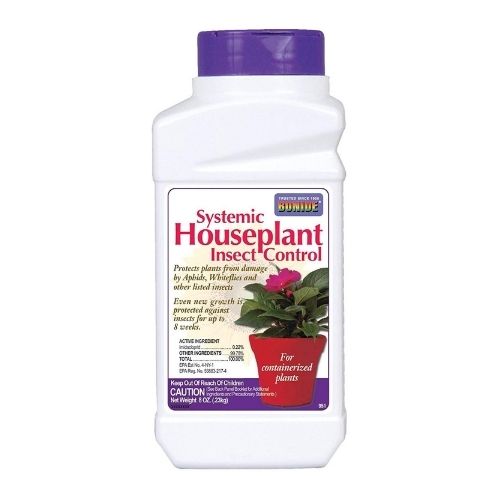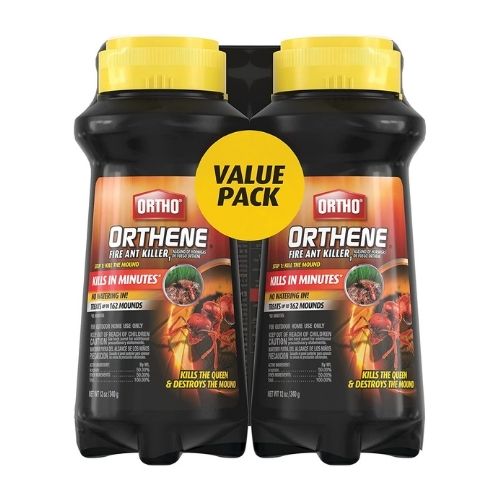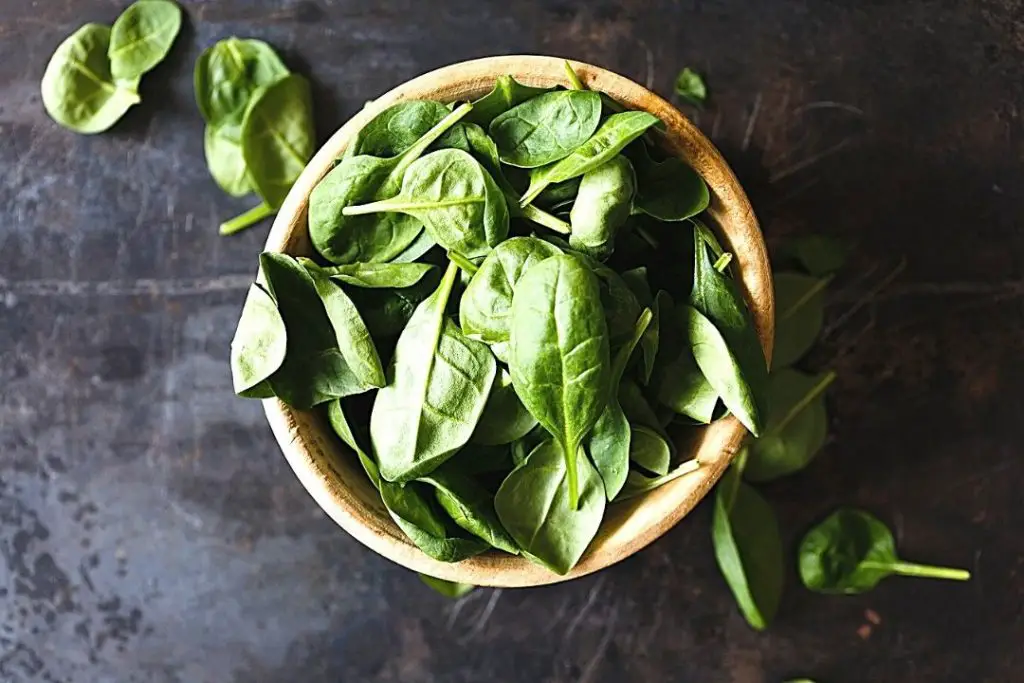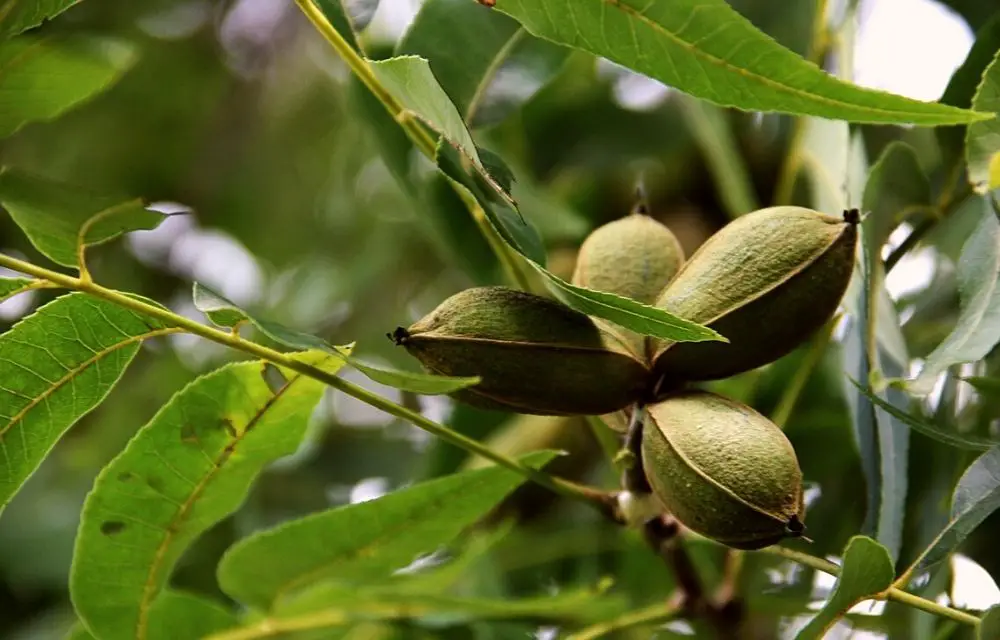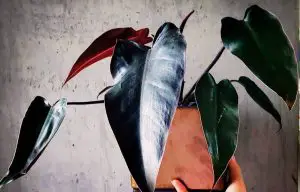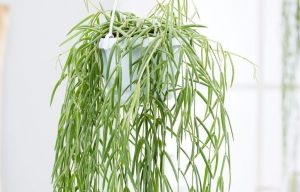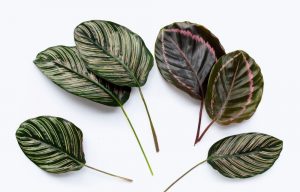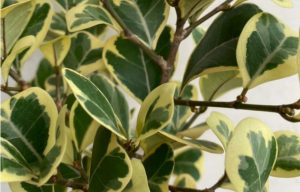Finding the perfect insecticide for your garden is an important part of gardening as this not only will protect your yields but will also leave you fulfilled knowing that the products you are using in your garden are safe for you and your family.
Insects in your garden are normal and a part of the ecosystem. Bees and other pollinators are important to maintain a plentiful harvest from herbs, veggies and fruits, while ladybugs and praying mantises control plant-damaging pests.
However, when insects such as worms, aphids, Japanese beetles, roaches start destroying your plantations they can very easily and quickly ruin your crops. Therefore, finding a good insecticide can prevent this from happening to your beautiful garden.
The best insecticide for vegetable garden are fast and effective at killing bugs that are destructive and troublesome to your crops without harming their beneficial cousins. A good insecticide should also be safe for your family and pets. It is also possible to find insecticides that are easy to apply and do not require specialized equipment.
Looking into the safety of pesticides before using them is also very important. This is because we as plant lovers do not want the pesticides to do more harm than good. Protecting our crops is our main priority however we also do not want our vegetables to have harmful substances in them as well as use these harmful substances in yields that our loved ones are going to consume. We also, as nature loves, want to protect our environment.
Oftentimes we find that the best insecticide for vegetable garden are filled with chemicals that we do not want to spray onto the vegetables which we intend to consume organically. Therefore, finding the best insecticide for your vegetable garden is an essential process.
Read on to find out the 8 best insecticide for vegetable garden.
What is an Insecticide?
Insecticides are a product made by substances that kill insects. Insecticides are used in agriculture, medicine, industry and by consumers.
Insecticides can be classified into two major groups: systemic insecticides, which have residual or long term activity; and contact insecticides, which have no residual activity. Insecticides are distinct from non-insecticidal repellents, which repel but do not kill.
Therefore, an insecticide is basically a substance used to kill insects and pests in your garden which will protect and keep your crops growing healthy and happy.
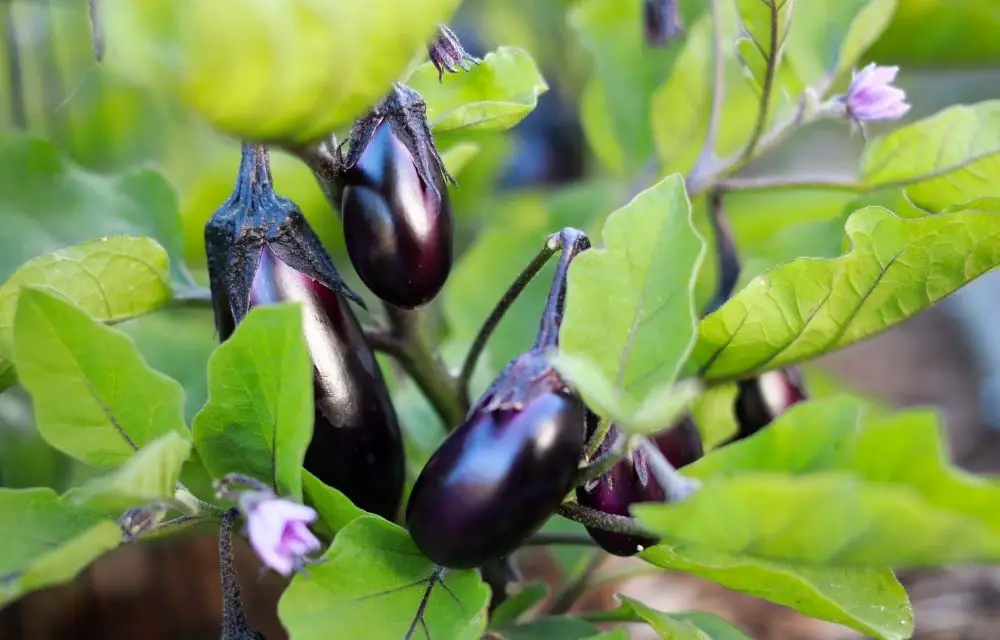
Types of Insecticides
Organic
The first first type of insecticide is organic insecticide. Organic insecticide is produced without the use of chemical fertilizers, pesticides, or other artificial chemicals. This means that it is much safer for you and your family as well as the environment around you.
In other words, you can save your garden without killing mother earth.Organic fertilizers do not rely on quick, yet potentially harmful, solutions such as herbicides, pesticides, and conventional fertilizers.
Homemade
Homemade insecticide is basically an insecticide that you can make with things you can easily find in your house. This is more cost-friendly as well as environmentally friendly.
Some examples of homemade insecticides are vegetable oil spray, soap spray, neem oil spray and garlic spray. This is an easy and environmentally friendly option that has been proven to be extremely effective.
Therefore, no need to spend so much on purchasing chemically made pesticides that will create more harm than good.
Natural
Finally, is a natural insecticide which once again is effective at helping to rid your crops of harmful critters, but safe enough to keep from poisoning you and your family.
One option for making this is by using neem oil. An oil extracted from the seeds of the neem tree is a powerful natural insecticide, capable of disrupting the life cycle of insects at all stages (adult, larvae, and egg), making it a great resource for gardeners that prefer organic options.
Neem oil acts as a hormone disruptor and as an “antifeedant” for insects that feed on leaves and other plant parts.
There are also a variety of different natural and organic options for keeping pests away. If you decide to purchase a insecticide instead of making it yourself all you have to do is request for an organic or natural option from your local nursery.
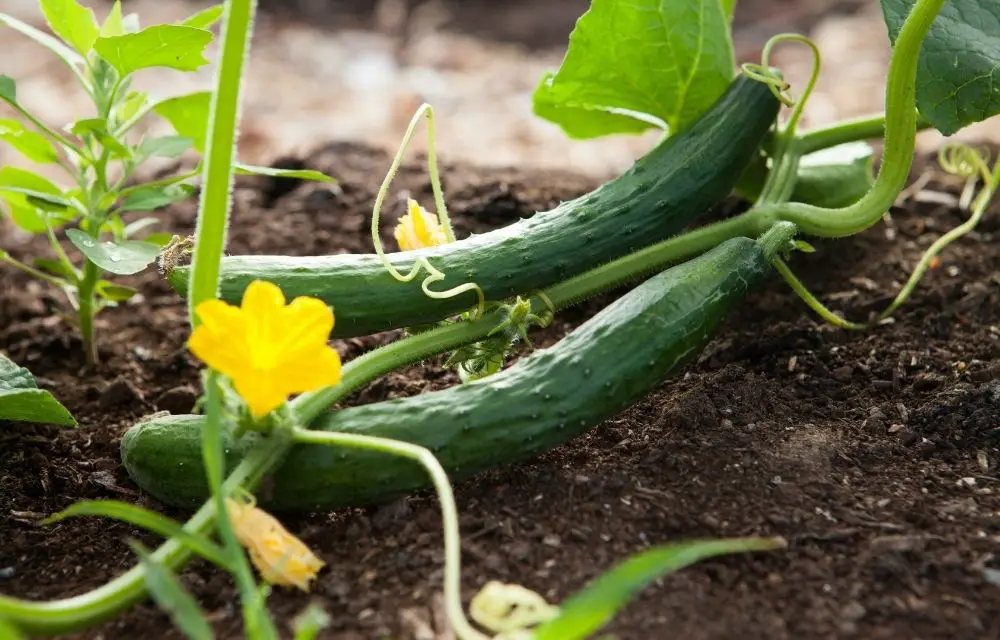
8 Best Insecticide for Vegetable Garden
This insecticide targets and controls more than 30 common pests such as bed bug, fly, ant, spider and wasps.
This is a water based insecticide that offers excellent indoor and outdoor pest control. It also has no odor and does not leave any stains on surfaces.
Get yours today and start protecting your crops before you harvest them!
Just 1 bottle of this premium insecticide is powerful enough to last the entire season that works against 200+ pests.
Multiple active ingredients including several naturally occurring triterpenoids in addition to quality cold-pressed Neem oil & pure Azadirachtin that boost its effectiveness versus cheaper alternatives.
Moreover, this premium formulation has been used by several of America’s largest organic farms for over 15 years.
This insecticide is EPA registered, OMRI-listed and USDA-approved for organic gardening.
This is a ready to use spray which means no mixing is needed.
Crop Control is the natural growers’ choice to help protect and cure Powdery Mildew, Spider Mites, Russet Mites, Broad Mites, Botrytis, Grey Mold, Aphids, fungal and parasitic species on plants.
It is a unique blend of food-grade PREMIUM essential oils including garlic, thyme, clove and peppermint oils broken down to NANO-SIZE particles for MAXIMUM COVERAGE.
Crop Control is made with natural food-grade ingredients so you can feel good about what you are putting on your plants and the planet.
This is another insecticide that controls pests which can be used indoors as well as outdoors.
This product comes as a concentrate which means that mixing the product with water is necessary.
Talstar Pro irradicates mosts pests from your garden and will protect your crops from further destruction.
This insecticide is to be used in and around Turfgrasses, Trees, Shrubs, Evergreens, Flowers, Foliage Plants, Ground Covers.
The longest-lasting grub control at exceptionally low use rates. This product gives outstanding residual control of numerous ornamental pests
It is also the No. 1 insecticide in the turf and ornamental market Broad-spectrum systemic action Outstanding preventive and curative control Long residual activity Usage rates up to 96% lower than many registered soil insecticides .
Get this for your garden to protect your crops!
A ready to use insecticide that kills on the spot. For use on edibles up to the day of harvest.
Kills aphids, beetles, caterpillars, ants, mealybugs, mites, leafhoppers, scale, thrips, fungus gnats, whitefly, adelgids, plant bugs.
This product will ensure that you keep those destructive pests off your beautiful vegetables.
This insecticide is convenient, ready-to-use granules provide effective, long lasting insect control for 8 weeks.
Excellent for indoor use, has no odor, no spray, no mess formula Protect gardens, lawns and trash cans.
This insecticide kills the queen and destroys the mound which will ensure that no new eggs are being produced.
No watering-in required and can be used as a mound treatment for home lawns and around ornamental plants.
For the best results, apply when fire ants are active and treat new pounds as they appear.
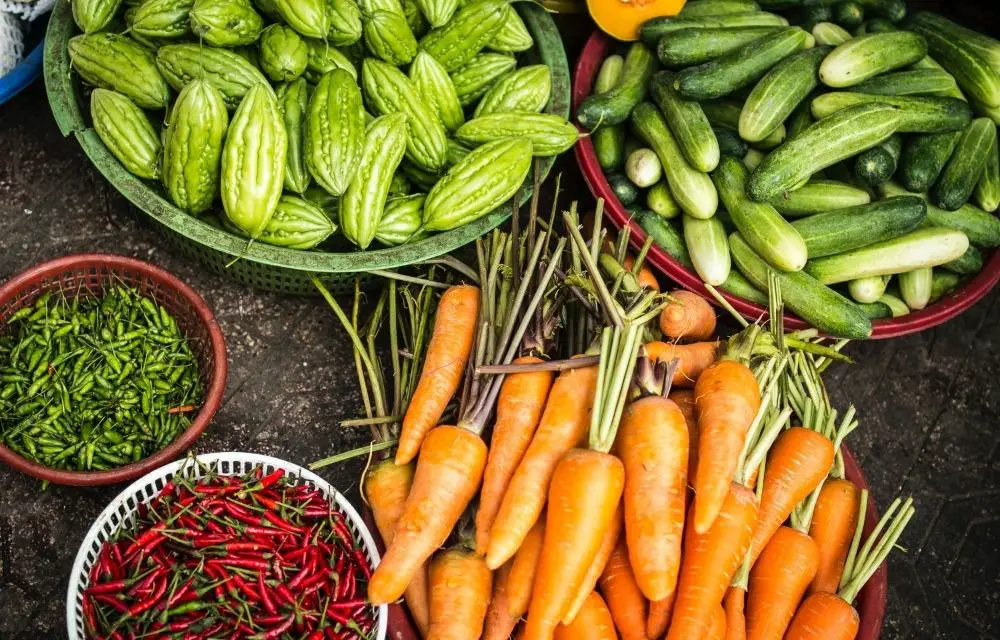
Vegetable Garden Care Guide
Soil
The condition of the soil in your garden plays an important role in determining whether or not your vegetables are going to flourish. It is often recommended by gardeners to use a mix of local soils and compost in your vegetable garden. This is because the mix you create will be accustomed to your country’s climate.
You can also choose to buy a ready-made soil mix from your local nurseries which are easy to use. The better your compost quality is in your soil mix the more nutrients your vegetables will be getting which means a high-quality yield.
Whether you choose to make your own soil mix or purchase it from the store the most important thing to ensure is that your plant is receiving all the nutrients it needs to blossom. Some essential nutrients are nitrogen, potassium and phosphorus. The soil mix should also have minerals such as iron, copper, zinc, carbon, magnesium, sulfur. iodine and boron.
Light
Vegetable gardens do best outdoors under direct and natural sunlight. If you are using grow lights, create a similar environment for your lush greens.
Keep your vegetables no further than 10 to 12 inches away from the grow lights and remember your vegetable will need a minimum of 14 to 18 hours of direct light every day. Also, try to look for grow lights that provide all the colours found in natural light. This is because the photosynthesis process requires red and blue light to regulate vegetative growth.
When setting up your lights, place them the way you would with a lamp. Position the grow lights on a solid and even surface above your vegetables. This creates a stable source of light for your juicy vegetables.
Watering
There are many ways to water your vegetable garden but it comes down to your personal preference. Some plant lovers use watering cans and manually water their plants while others use sprinkles or other watering devices.
One method of watering your garden is by using some recycled items from your house. You can easily make your own vegetable garden watering device by collecting buckets, coffee cans, bottles, milk jugs or similar containers and poke holes in the bottoms.
After that, sink the containers a foot or two into the ground right next to each plant. When it’s time to water. All you have to do is fill up the containers and allow the water to soak right through the soil and into the roots.
Other devices that you can consider are soaker hoses, drip irrigation or a hose timer.
Temperature
The temperature in which your vegetables are growing is a vital aspect in ensuring that your plants grow in abundance.
The optimum soil temperature for your vegetable garden for planting most vegetables is between 65 degrees to 75 degrees Fahrenheit. Other than that your vegetables will need a good amount of direct sunlight daily.
Humidity
Humidity is another important aspect to consider for your lovely vegetables. Vegetables need high relative humidity between 85 per cent and 95 per cent. This range includes asparagus, beets, broccoli, cabbage, carrots, cauliflower, celery, beans, peas, radishes, corn and turnips. Greens, scallions and lettuces also need high humidity but should be kept separate.
Fertiliser
Fertiliser as you plant lovers know is an important aspect in ensuring your vegetables grow healthily. It is important to pick fertilizers that provide a boost of nitrogen, potassium and phosphorus. This is because, as we discussed earlier, these are the key nutrients needed by most vegetables.
There are many varieties of vegetable fertiliser however, we recommend using liquid fertilizers. Some examples of liquid fertilisers are compost tea, worm casting tea or all-purpose liquid organic fertilizers.
Toxicity
Soil toxicity is a common occurrence in vegetable gardens especially if your soil is contaminated or polluted. Even pain chippings from old buildings or even your house can lead to the soil becoming highly contaminated with toxic substances.
These toxins in the soil will inevitably end up in the vegetables that you are growing and will create health issues for the consumers. Therefore, it is vital for gardeners to get their soils tested by experts to ensure that the soil is ideal for the growth of vegetables that are organic and healthy for you and your family.
Another method is to create a separate vegetable bed away from the ground and using an organic soil mix. To grow your vegetables. This will ensure your soil quality is in its best condition for growing your beautiful vegetables.
Pruning
Pruning is a practice done by gardeners who selectively remove parts of the plant. Most commonly the branches, buds or roots. This is done to improve the plant’s air circulation, train the plant to grow a certain way. Improve the yield and quality of the flowers and fruits, or remove dead or damaged sections.
Nearly all expert gardeners agree that it is a good idea to prune certain plants; however, with vegetables it may not be the same case. Of course, removing dead and yellow leaves is important but there are pros and cons to pruning vegetables as it can even create a more negative effect on your yield.
Propagation and Growth
Propagation is one of the fun parts of gardening and creating new plants can be a fulfilling experience for a plant lover like yourself! However, propagating vegetables is slightly trickier than propagating indoor house plants.
Propagation usually occurs as a step in the overall cycle of plant growth. For seeds, it happens after-ripening and dispersal; for vegetative parts, it occurs after detachment or pruning; for asexually-reproducing plants, such as strawberry, it happens as the new plant develops from existing parts.
Repotting
Repotting will allow your plant more room to grow and flourish especially when its pot is getting too small. A day or two before repotting your vegetables, give your plants a thorough watering. This is because plants are easier to repot when the soil is moist.
Pour some potting mix into a bucket or bowl and add an equivalent amount of warm water, then blend thoroughly. Most soilless potting mixes are somewhat water repellent when dry, so you need to stir them.
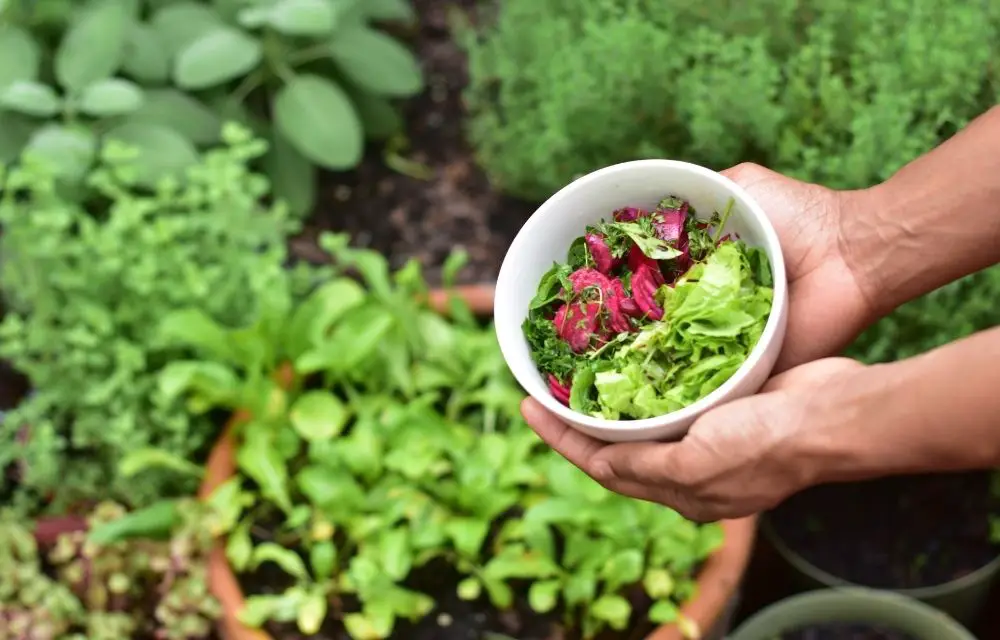
Common Issues with Vegetable Garden
People who want to grow their own vegetables do face some problems in the process. One of them is controlling garden pests. That’s why it’s important to choose the right products when choosing insecticides for vegetable garden.
There are many issues that gardeners can face while they are growing a vegetable garden. It can be difficult to grow vegetables in some areas because of the lack of water, sunny days, or soil. It can also be hard to maintain a vegetable garden properly because it is easy for pests to get into a garden and eat the vegetables and their roots. Vegetable gardens can make your backyard look aesthetically pleasing and produce useful foods and plants for the family.
So what are those common issues that you might come across?
- Too many insects and different types of bugs getting in the way of growing your own garden.
- Wholesale vegetable plants are available locally that you can grow.
- Insecticides that are not good to use on vegetables, so you need help on what to buy and how much to use in order not to harm or kill off the vegetables you’re growing for harvest.
- Spiders and other insects can be a nuisance when you’re trying to get your garden plants off the ground.
- A lot of big and small bugs are coming at you in flocks that it seems there’s no stopping them from crawling over your vegetables, such as tomatoes, cabbage, cucumbers etc.
- Some people have lots of leaf-eating insects and caterpillars that the plants can’t grow
- Small bugs, aphids or whiteflies are covering your vegetable garden plants with a sticky substance called honeydew, which makes it hard for them to absorb the needed nutrients from the soil.
Insecticide for Vegetable Garden Frequently Asked Questions
What can I spray on my vegetable garden to kill bugs?
For a serious bug infestation, this requires more intense measures. However, many insects such as aphids, thrips and spider mites are easily controlled with a solution of 1 teaspoon of neem oil, ¼ teaspoons of insecticidal or dish soap and 1 quart of water.
Begin by spraying your vegetables where there are signs of trouble and continue this process every week when needed. Oftentimes, the pests leave completely after spraying your vegetables. However, in some cases, they may come back but not to worry dear gardener keep a spray bottle ready and spray your vegetables thoroughly once again whenever pests begin attacking your vegetables again.
What is a safe pesticide to use on vegetables?
Organic and natural pesticides are the safest to use for your vegetable garden. This is because it does not harm you or your environment. If possible, this should be your first choice of pesticide for your garden.
Pyrethrin is an insecticide that is extracted from flowers and is non-toxic to your vegetable garden. It is very effective in killing ants, cockroaches, fleas, true bugs, aphids, caterpillars, flies, and wasps. In addition, this insecticide quickly disappears from plants and soils after it eliminates pests within a few days.
What is safe to spray on my vegetable garden?
Natural sprays are the safest to use on your vegetable garden. There are many DIY recipes online to make a safe spray using items from your home. You can use neem oil, soap sprays and even garlic.
Another option is to purchase an all-natural and organic pesticide spray. These natural pesticide sprays are the best option for your garden and your environment. This is because we can choose to avoid chemical substances that are harmful.
How do I keep bugs out of my vegetable garden?
There are a variety of organic and safe products that can help you keep bugs off your vegetable garden.
For severe cases, a stronger pesticide may be necessary however for not so severe cases a diy homemade natural pesticide spray will work perfectly.
Spraying your vegetables that are being attacked will eradicate and prevent them from destroying your crops. If the pests come back after a few weeks just repeat the process.
Will vinegar kill bugs on tomato plants?
Although vinegar kills bugs on plants, if you spray vinegar on plants it will damage the leaves. Therefore it is important to make sure that the pesticide you choose for your plants is not going to cause more damage than good.
Vinegar contains acetic acid which can destroy leaves cell membrane, so it affects photosynthesis and can kill plants. Therefore, you can’t spray vinegar on plants.
Using natural and organic options are the best and you can make a simple spray at home or even purchase an organic pesticide spray from your local nursery.
What is the best natural pesticide?
Ancient Indians highly revered neem oil as a powerful, all-natural plant for warding off pests.
This is because, neem juice is one the most powerful natural pesticides on the planet, containing over 50 natural insecticides. This extremely bitter tree leaf makes a safe and natural pesticidal spray.
Choosing natural pesticides is the best option for your garden as it promotes a healthier life for your garden and yourself.
Conclusion
In conclusion, pesticides are an important aspect of gardening as it keeps your plants healthy, protected and therefore happy. Being a plant lover, educating yourself on the variety of pesticides available in the market will help you understand and decide what is best for your own vegetable garden.
Natural and organic pesticides are widely available in the market. Using chemicals that are harmful to the environment and yourself is not necessary to keep pests away from your vegetables.
Choosing a product that is not only good for the environment and healthier for your consumption not only makes you more fulfilled as a gardener but creates an impact for all those consuming your vegetables as well as other gardeners who will be inspired by your caring choices.
For related articles please read:


